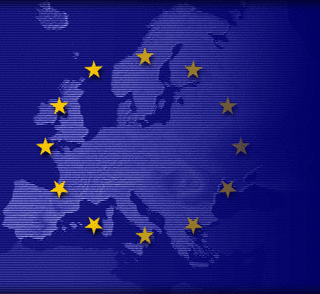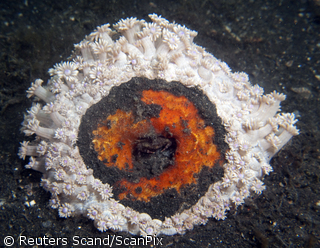Data storage companies Toshiba and SanDisk announced a new flash memory chip designed to address the growing use of large media files
Published:
11 February 2005 y., Friday
Data storage companies Toshiba and SanDisk announced a new flash memory chip designed to address the growing use of large media files.
The joint development partnership has produced a chip that accommodates 8-gigabits (Gb) of storage. Made using 70-nanometer (nm) process technology, the computer memory chip is based on a NAND design, which makes it suitable for storing music, video and other data. Toshiba and SanDisk said products based on their new flash memory technology should start rolling out this summer.
The companies said the 8Gb chip will become "the production workhorse" for the joint venture between Toshiba and SanDisk. At a size of 146-millimeters, the 8Gb chip has a density of 6 billion bits or 3 billion transistors per square centimeter (20 billion transistors per square inch of silicon). The companies said they also plan to commercialize a 16Gb NAND flash memory component that stacks two of the 8Gb NAND flash memories in a single package.
The new NAND flash memory chip uses multi-level cell technology that lets two bits of data be stored in one memory cell - in effect doubling the memory capacity. The circuit design is less than 5 percent larger than the previous generation 4Gb chip on 90-nanometer. Toshiba and SanDisk said they also increased the speed at which the chip writes data with a combination of burst mode techniques and high read bandwidth.
Production of the chip falls right in-line with Toshiba's previously announced roadmap and is designed to compete against the largest flash memory producer, Samsung.
Šaltinis:
internetnews.com
Copying, publishing, announcing any information from the News.lt portal without written permission of News.lt editorial office is prohibited.
The most popular articles

The European Commission announced today the award of three of the six contracts for the procurement of Galileo’s initial operational capability.
more »
 Today the European Commission has adopted measures to make participation in the EU's current Seventh Framework Programme for Research more attractive and more accessible to the best researchers and most innovative companies, especially Small and Medium-Sized Enterprises (SMEs).
more »
Today the European Commission has adopted measures to make participation in the EU's current Seventh Framework Programme for Research more attractive and more accessible to the best researchers and most innovative companies, especially Small and Medium-Sized Enterprises (SMEs).
more »
 European civil servants go back to school to talk to young people about what the EU does.
more »
European civil servants go back to school to talk to young people about what the EU does.
more »
 The European Commission adopted the ENPI Interregional Action Programme for 2011. It covers the European Neighbourhood countries and Russia and is worth a total of €52 million.
more »
The European Commission adopted the ENPI Interregional Action Programme for 2011. It covers the European Neighbourhood countries and Russia and is worth a total of €52 million.
more »
Space agency confirms feasibility studies are underway into a one–way mission to colonise the Red Planet.
more »
 Scientists complete the world's first ocean census, part of a 10-year effort in which thousands of new marine species were discovered.
more »
Scientists complete the world's first ocean census, part of a 10-year effort in which thousands of new marine species were discovered.
more »
 The European Commission has launched a new drive to encourage more European universities to offer high-quality courses for students who want to work as translators.
more »
The European Commission has launched a new drive to encourage more European universities to offer high-quality courses for students who want to work as translators.
more »
 Education at a Glance covers 35 countries, including 21 EU countries and looks at what is spent on education, how education systems operate and what results are achieved.
more »
Education at a Glance covers 35 countries, including 21 EU countries and looks at what is spent on education, how education systems operate and what results are achieved.
more »
 European civil servants go back to school to talk to young people about what the EU does.
more »
European civil servants go back to school to talk to young people about what the EU does.
more »
 The World Bank will provide the Palestinian Authority (PA) $5 million to fund the Teacher Education Improvement Project.
more »
The World Bank will provide the Palestinian Authority (PA) $5 million to fund the Teacher Education Improvement Project.
more »
 The European Research Council has now funded over 1000 innovative ideas. A further €661m is still available for early-career researchers.
more »
The European Research Council has now funded over 1000 innovative ideas. A further €661m is still available for early-career researchers.
more »